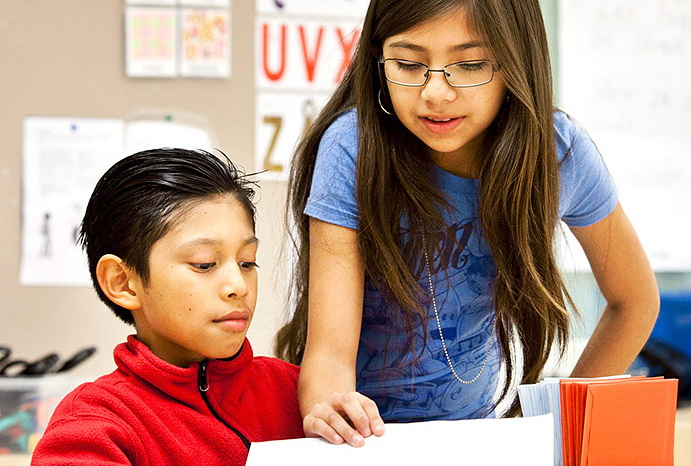About preschool class
Engelska (ENG)
Preschool class is compulsory for all children. It is designed to stimulate pupils' development and learning, and to prepare them for their future education.

Who goes to preschool class?
Preschool class is compulsory for all children. Most children start preschool class when they are six years old, but in some cases they may start at the age of five or seven.
Compulsory school attendance and right to education, skolverket.se
Applying for a place in preschool class
Your municipality is responsible for ensuring that your child is offered a place in a preschool class, but you have the option of expressing a preference as to which school your child should attend. A preschool class organised by an independent school is an alternative to municipal education. If you want your child to attend an independent school, contact that school to find out how to apply.
Application and admission to compulsory school (link)
Education in preschool class
Your child attends school for a maximum of 6 hours per day. The rest of the day, your child can be in school-age educare or educational childcare.
Preschool is the first phase of the Swedish education system and is intended to lay the foundation for lifelong learning. The preschool class combines the working methods and pedagogy of preschool and school, and can act as a bridge from preschool to school.
Education in the preschool class is based on the Education Act and the preschool class curriculum
Education in the preschool class must follow the Education Act and the preschool class curriculum. This sets out the objectives of the programme and the rules it must follow. Teaching in the preschool class must be adapted to the individual conditions and needs of the pupils.
Play is an important aspect of preschool class
Creation and play are important elements of preschool class. Exploration is also an important component.
Preschool class is designed to give your child the opportunity to develop good relationships with peers and to feel a sense of belonging and security in the group.
Communication and language development
In preschool class, your child will communicate both orally and in writing in different contexts. They will also learn to communicate in different ways using aesthetic forms of expression, such as drama, dance, music, art and form.
If your child has a mother tongue other than Swedish
If your child has a mother tongue other than Swedish, preschool classes will help your child to develop their language skills in both Swedish and their mother tongue. Through teaching and everyday activities, your child will be given the opportunity to use both Swedish and their mother tongue. However, they are not entitled to mother tongue tuition until Year 1 of school.
Mathematics
In preschool class, your child will use mathematical concepts to solve problems. They will also explore and describe events and relationships in nature and other places that the pupils visit.
The preschool curriculum describes what all children are entitled to during their time in preschool. It states, for example, that education in preschool is to be conducted in democratic forms and that children are to be able to play and have influence over their everyday lives.
Curriculum for preschool class, skolverket.se
Food in preschool class
In preschool class, pupils eat lunch. This lunch is both nutritious and free of charge. Decisions on what food is served and how are made by the municipality, or by the board if it is an independent school. Some municipalities have a single menu served at all of the schools, while others allow each school to decide on its own menu.
In some schools, food is prepared in a central catering kitchen and delivered to the preschool. Other schools have an on-site chef who prepares the food.
All children with food-related allergies are fed allergy-friendly meals. The possibility of receiving any other type of adapted diet may vary between schools, for example, if you want your child to eat vegetarian food.
How much does it cost to attend preschool class?
Preschool class is free of charge. In other words, it costs nothing. Your municipality is allowed to charge a reasonable fee if your child needs a place in school-age educare.
Municipal and independent schools
There are both municipal and independent preschools.
Municipal or independent compulsory school?
Pedagogical approaches in preschool class
Schools can use a number of different pedagogical approaches to structure and design teaching and the physical environment of the school. Montessori, Reggio Emilia, project-based learning and play-based learning are just of few examples of pedagogical approaches. Preschool class will often use a combination of different pedagogical approaches to shape learning in a way that fosters development in all pupils.